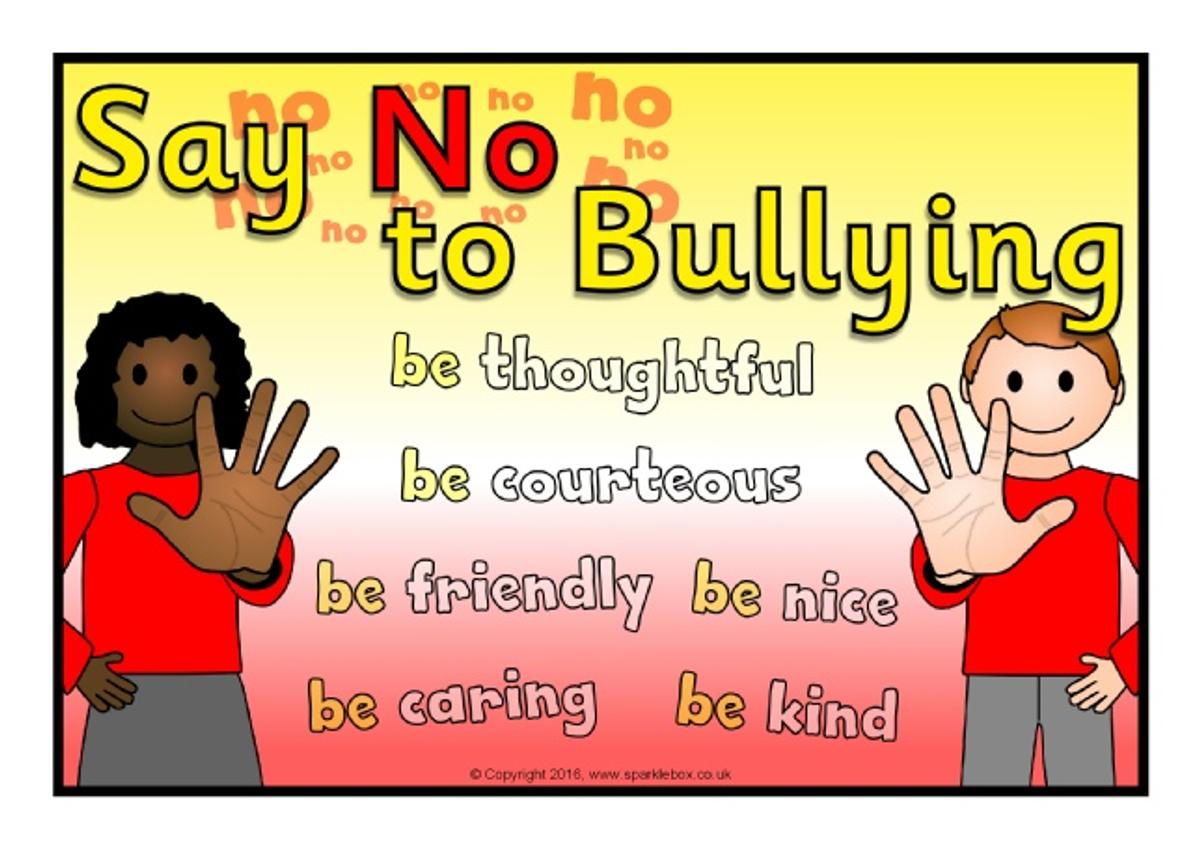Wellbeing

BULLYING
Everyone has a right to feel safe
Ginny, aged 12 years, did not want to go to school. She felt sick in the stomach. Ginny’s Dad thought she should go to school, but Dad did not know what had been happening. Crystal and her group had been spreading rumours about Ginny. Ginny had seen them looking at her and whispering to others when she walked past. Now no one wanted her to sit at the same table with them in class. Even if she tried to act friendly towards them, they were mean to her. One of them had written ‘weirdo’ on her school bag. Ginny’s older sister said to ignore them, but that didn’t seem to work. They just got meaner and tried harder to upset her. Ginny did not know what to do. She worried that if she told the teacher or her parents it would make things even worse.
What is bullying?
Bullying involves deliberately and repeatedly attempting to hurt, scare or exclude someone. It can include hitting, pushing, name calling, or taking someone’s belongings.
Bullying can also be more indirect, for example, deliberately leaving someone out of games, spreading rumours about them, or sending them nasty messages.
Cyber-bullying involves using mobile phones and the internet to bully others. The main purpose of the bullying is to have power over someone else.
Bullying is a mental health concern because it causes distress and can lead to loneliness, anxiety and depression. Bullying can also affect children’s concentration and lower their achievement at school.
When children have been bullied they may:
- not want to go to school
- be unusually quiet or secretive
- not have friends
- seem over-sensitive or weepy
- have angry outbursts.
You may notice that their property has been damaged or is missing.
Responding to bullying
It is very important to let children know that bullying is not okay and that they should report it when it does occur. Schools set standards for appropriate behaviour and safety. They also have guidelines for reporting and responding to bullying when it occurs. The consequences for bullying should address what has happened and help to ensure it will not happen again.
It is very important for the bully to understand how his or her behaviour has affected the other person and to be clear not to repeat that behaviour. To help prevent bullying, children can be taught how to be respectful and caring towards others. Children who bully may appear confident but often lack skills for building positive friendships.
Learning to be more assertive can help those who are bullied to stand up for themselves. Learning the skills of assertiveness can also help those who bully find ways to communicate their wants, needs and opinions without becoming aggressive. Both those who are bullied, and those who do the bullying, will benefit from learning effective social and emotional skills.
How parents and carers can help
If your child is being bullied:
- listen and provide support to your child
- try to understand what has been happening, how often and how long
- encourage social skills, like being assertive, telling the bully to stop and seeking help
- support your child to think through different ways they could deal with the problem
- talk with your child’s teacher and ask for help
- keep talking with the school until your child feels safe.
If your child tells you about bullying he has seen or heard at school:
- encourage your child to stand up for the child who is being bullied
- encourage your child to report what he/she has seen or heard to school staff
If your child is doing the bullying:
- make sure your child knows the bullying behaviour is inappropriate and why
- try to understand the reasons why your child has behaved in this way and look for ways to address problems
- encourage perspective taking (eg “how would you feel if …”)
- help your child think of alternative paths of action.
To help prevent cyber-bullying:
- supervise children’s use of electronic devices
- teach children about ways of keeping safe when using the internet and mobile phones

